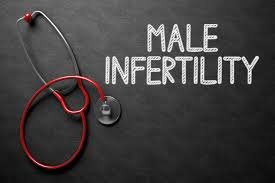Breaking the silence on Male Infertility
June 10, 2019 | Monday | Features | By Zoya Brar
Counselling sessions aim at giving emotional support to patients who’ve learnt about their medical condition and/or patients experiencing distress
The need to raise awareness on the subject
Few decades back, the topic of ‘male infertility’ was not only seldom talked about but almost non-existent. When a couple kept failing to conceive, the blame would automatically be put on the woman. In fact, it would be naturally assumed by the community that the women was at fault for not being able to get pregnant.
The solution? In majority of cases, the man would himself or be forced to move on with someone else for a ‘better future’. However, with increased awareness, people of all genders are coming forward to talk about this taboo of a topic. People are actually addressing the social stigma attached to male impotency and how instead of shaming the affected individuals, they should be encouraged to get diagnosed and treated at the earliest.
Additionally, as per an NCBI report, of all infertility cases, approximately 40% - 50% is due to “male factor” infertility, owing to the reproductive anomalies in the male. Therefore, it is imperative for individuals to be open about this topic in order to promote awareness and responsiveness on the same.
Common types of issues related to male infertility
Based on various tests carried out at diagnostic labs, some of the most common problems that have been witnessed, attached to male infertility cases,include asthenozoospermia (poor sperm motility), oligospermia (low sperm count) and abnormal morphology (sperm with head or tail defects).
Impact of early diagnosis
Like any other medical condition, earlier the diagnosis, better is the treatment. In case men observe few common symptoms or signs of infertility - such a decreased libido, pain or swelling in the testicles, erectile dysfunction etc. - they should immediately visit the nearest doctor and subsequently get relevant tests done. This can provide a realistic idea of the condition, possibility of a cure, the type of treatment required and other alternatives, if needed.
Various diagnostic tests and their outcome
Prior to recommending infertility testing, the doctor understands the patient’s sexual habits and makes recommendations based on that. In some infertile couples, no specific cause is found (unexplained infertility).
Below are few recommended tests by doctors:
|
Semen analysis
|
A semen analysis provides information about the number, movement and shape of the sperm
|
|
Hormone Testing
|
A blood test determines the level of testosterone and other male hormones
|
|
Genetic testing
|
Genetic testing determines whether there’s a genetic aberration causing the infertility
|
|
Testicular biopsy
|
To identify abnormalities contributing to infertility and to retrieve sperm to use with assisted reproductive techniques, such as IVF
|
|
Imaging
|
In certain situations, imaging studies such as a brain MRI, bone mineral density scan, transrectal or scrotal ultrasound, or a test of the vas deferens (vasography) may be performed
|
|
Other tests
|
Testing the quality of the sperm may be performed, such as evaluating a semen specimen for DNA abnormalities
|
How many are impacted and why?
Infertility and problems of impaired fecundity have been a concern through ages and is also a significant clinical problem today, which affects 8–12% of couples worldwide.The rates of infertility in less industrialized nations are markedly higher and infectious diseases are responsible for a greater proportion of infertility.
Counselling is imperative
The desire for a child is important for an individual’s overall development. It does not exist from birth but usually increases as time passes. The wish for a child is not only a result of deeply felt need originating from individual instincts but also depends on the development of individual personality, sociocultural processes, economic factors, individual biographical changes, fate, interpersonal processes between partners and family dynamics. These psychosocial factors moderate the wish for a child. If the wish is not fulfilled, hopelessness may arise. The patients may express feelings of guilt. There may be desperation and grief. The problem of infertility becomes a problem within the relationship of the partners.
Counselling sessions aim at giving emotional support to patients who’ve learnt about their medical condition and/or patients experiencing distress. Distress can be caused by the frustration of the desire for a child, social and family pressure as well as by the reproductive technology employed and its limited success rate. Such distress motivates the need for emotional support from many sources (such as family members, partner, and support groups). The treatment process might also provoke periods of particular distress that might increase the need for support counselling. For example, during phases of intensive assessment, waiting periods, failure to achieve pregnancy, decision conflicts with respect to treatment termination, and the end of treatment and so on.
Zoya Brar, Founder and Managing Director, CORE Diagnostics









